March 21 marked World Poetry Day.
UNESCO first adopted World Poetry Day in 1999, with the aim of supporting linguistic diversity through poetic expression. World Poetry Day is the occasion to honour poets, revive oral traditions of poetry recitals, promote the reading, writing and teaching of poetry, and to foster the convergence between poetry and other arts.
Mississauga has strong traditions of poetry, particularly through the adoption of a Poet Laureate in 2015, which have included Mississauga Poet Laureates Anna Yin, Wali Shah and Paul Edward Costa.
But over 100 years earlier, there was Andrew Henry Crozier.
In 1901, Andrew Henry Crozier (1859-1941) of Meadowvale (well, he actually lived in a crossroads hamlet locally referred to a Harris’ Corners and Crozier’s Corners) wrote and composed a New National Anthem for the British Empire.
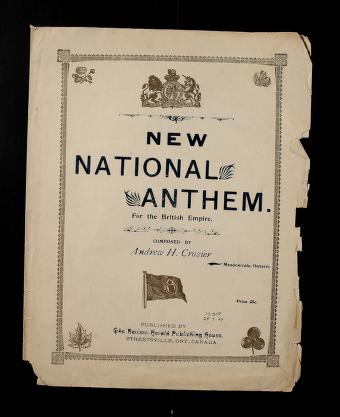
Music accompaniment was written by the renowned composer Henry Herbert Godfrey (1858-1908), himself the author of several patriotic Canadian songs prior to 1900.
In 1902 Godfrey produced an album called Canadian patriotic songs and melodies. Andrew Crozier seemingly knew exactly who to connect with for putting his poetry to music. Andrew may have conceived the idea for a new anthem following the death of Queen Victoria in January of 1901 and the ascension to the throne by King Edward VII.
Crozier even received Royal permission to use portraits of King Edward VII and Queen Alexandra accompanying the music sheets, which were available for purchase as announced in the Brampton Conservator on August 9, 1901.
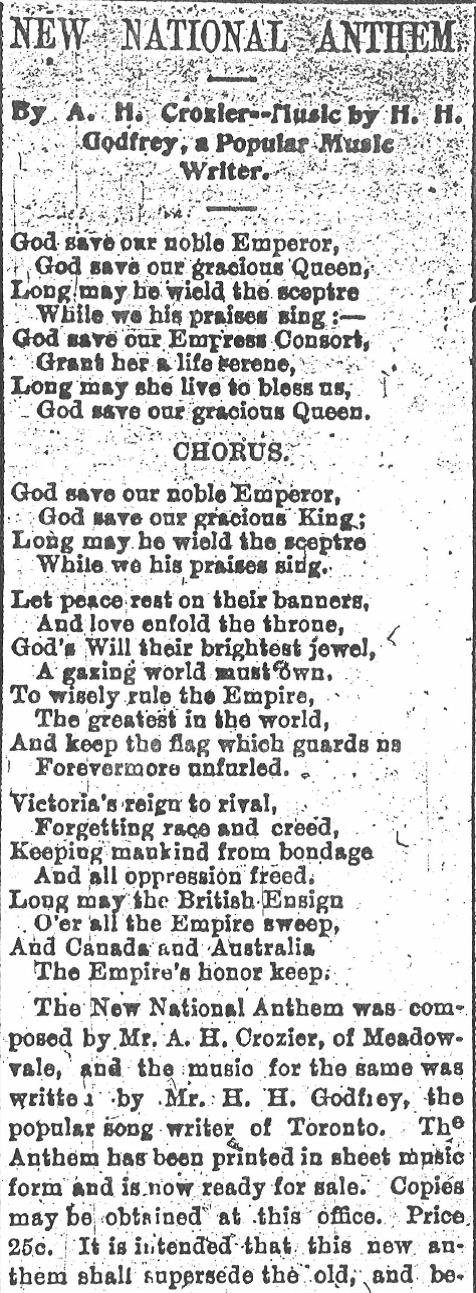
As noted in the Conservator, “It is intended that the new anthem shall supersede the old one and become the recognized National Anthem of the whole British Empire.”
But who was Andrew Crozier?
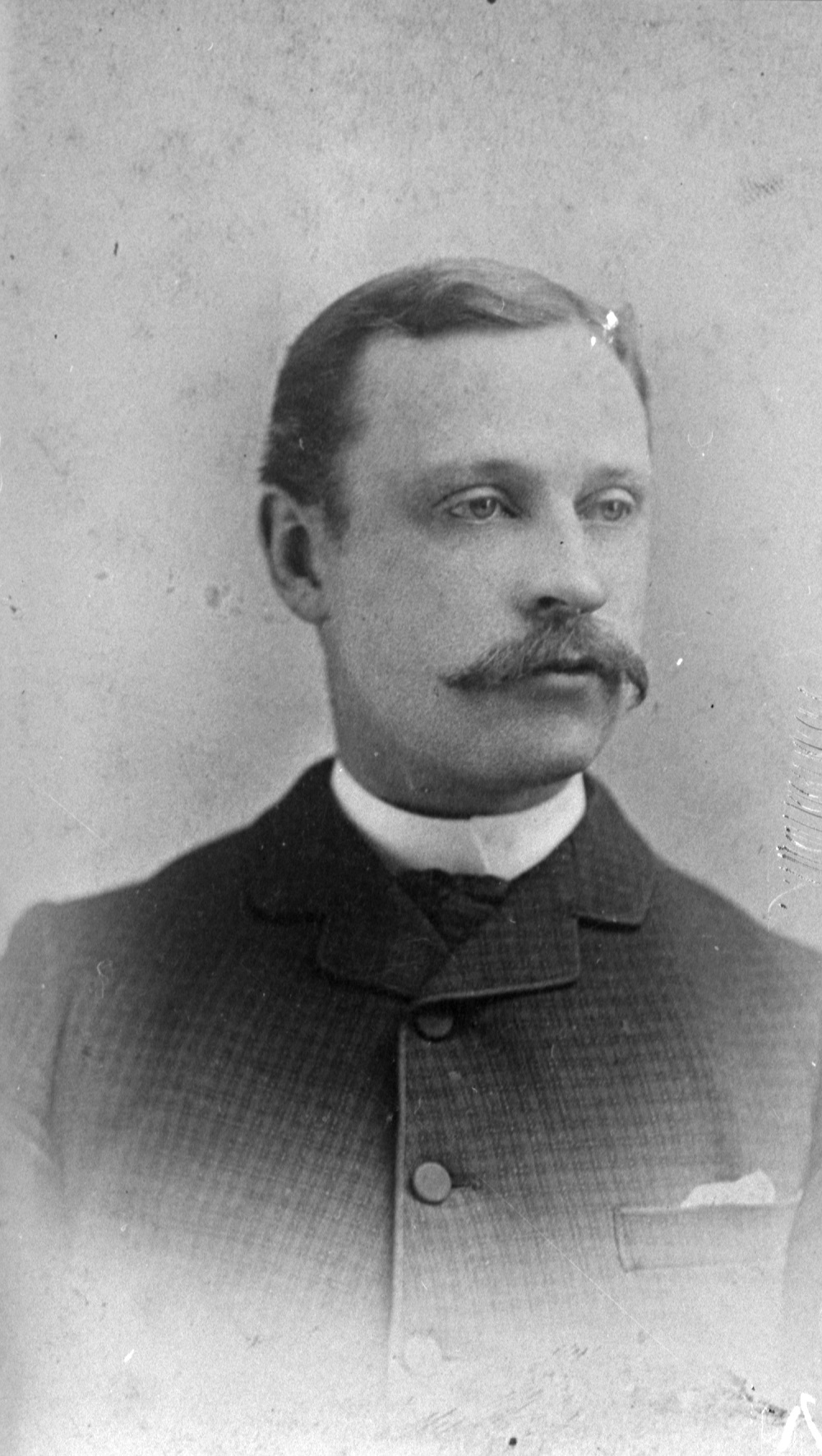
The Crozier family was originally from Dromore, County Tyrone, Ireland, and Andrew’s parents, John and Mary Jane Crozier, came to Canada with their children in 1869, first settling near Milton.
In 1885, John purchased the former Birdsall-Harris “Manor Farm” at the southeast corner of what was then Derry Road and Mississauga Road, on Lot 10, Concession 4, WHS. (Note: this intersection no longer exists as Derry Road was rerouted slightly north of its original route).
The Crozier family included eight children: Isabella (1853-1946), Mary Anne (1855-1913), John James (1857-1932), Andrew Henry (1859-1941), William Thomas (1862-1940), Margaret (1865-1936), Sarah Jane (1865-1933) and Rebecca (1868-1904), all of whom were born in Ireland.
Before the arrival of the Crozier family in 1885, the crossroads had come to be referred to as Harris’ Corners, after William “Ginger” Harris’ well known Grand Hotel.
After the Croziers began acquiring property here, the crossroads became locally known as Crozier’s Corners. In 1908 Andrew inherited the “home farm” from his father at the southeast corner; his brother William Thomas Crozier owned the farm at the southwest corner, and another brother, John James Crozier, owned the farm at the northwest corner. Additionally John James’ brother-in-law, Edgar Shields, owned the farm on the northeast corner – Crozier’s Corners indeed!
In 1928, Andrew granted his property to his brother, John James, although Andrew continued to love on the property. Andrew remained close with his brother John James and his wife Jennie (nee Shields) Crozier. Jennie handled Andrew’s affairs when he passed away in 1941.
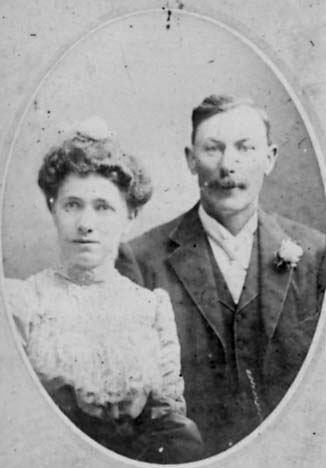
Andrew, whose primary occupation was listed as a farmer, wrote poetry for the British periodical publication Truth, and contributed to the Daily World and the Streetsville Review-Herald. Andrew was a member of the Meadowvale Literary Society.
The society produced its own newspaper, the Meadowvale Mirror, for a short time in the early 1900s. Andrew is also mentioned as being acquainted with John Craig Eaton (1876-1922), second president of the T. Eaton Company, and a close friend of Harry Spiers (1869-1947), noted artist and publisher. It was Spiers’ Review-Herald Publishing House in Streetsville that published Andrew’s new anthem.
Despite some of the well-known people that Andrew Crozier was connected with, relatively little is known of Andrew himself, and few examples of any of his own work have been located. Unmarried, Andrew passed away in Streetsville in 1941 at the age of 84, and he was laid to rest alongside his parents in Trinity Anglican Cemetery in Streetsville.
As for Andrew’s New National Anthem for the British Empire it is unclear how popular it became, despite its Royal endorsement.
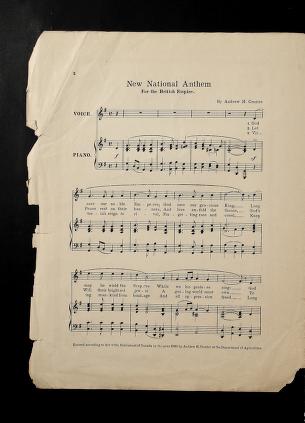
This article can also be found in Modern Mississauga: https://www.modernmississauga.com/main/2021/3/24/remembering-mississaugas-andrew-crozier



Comments are closed.